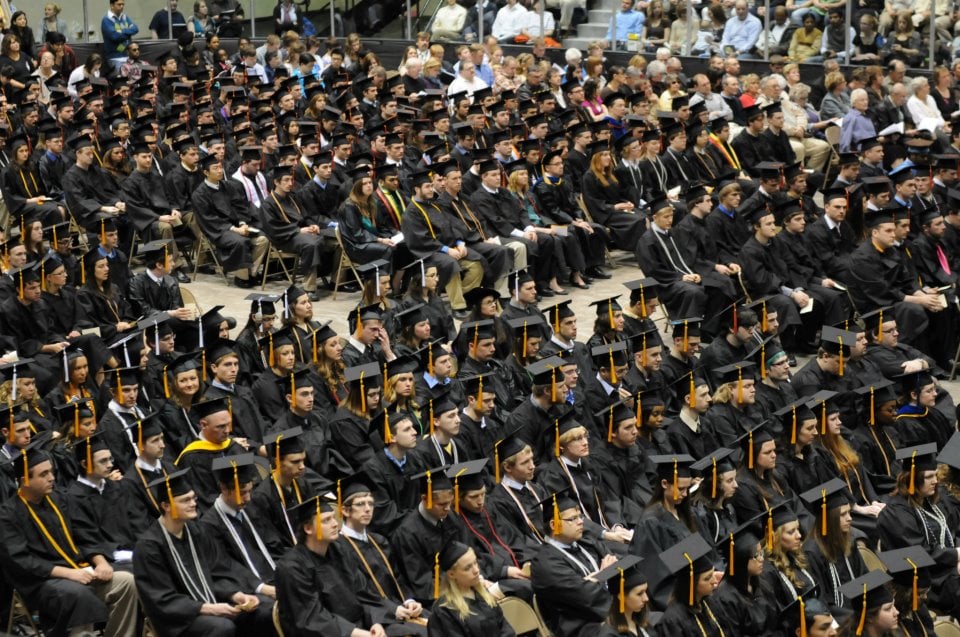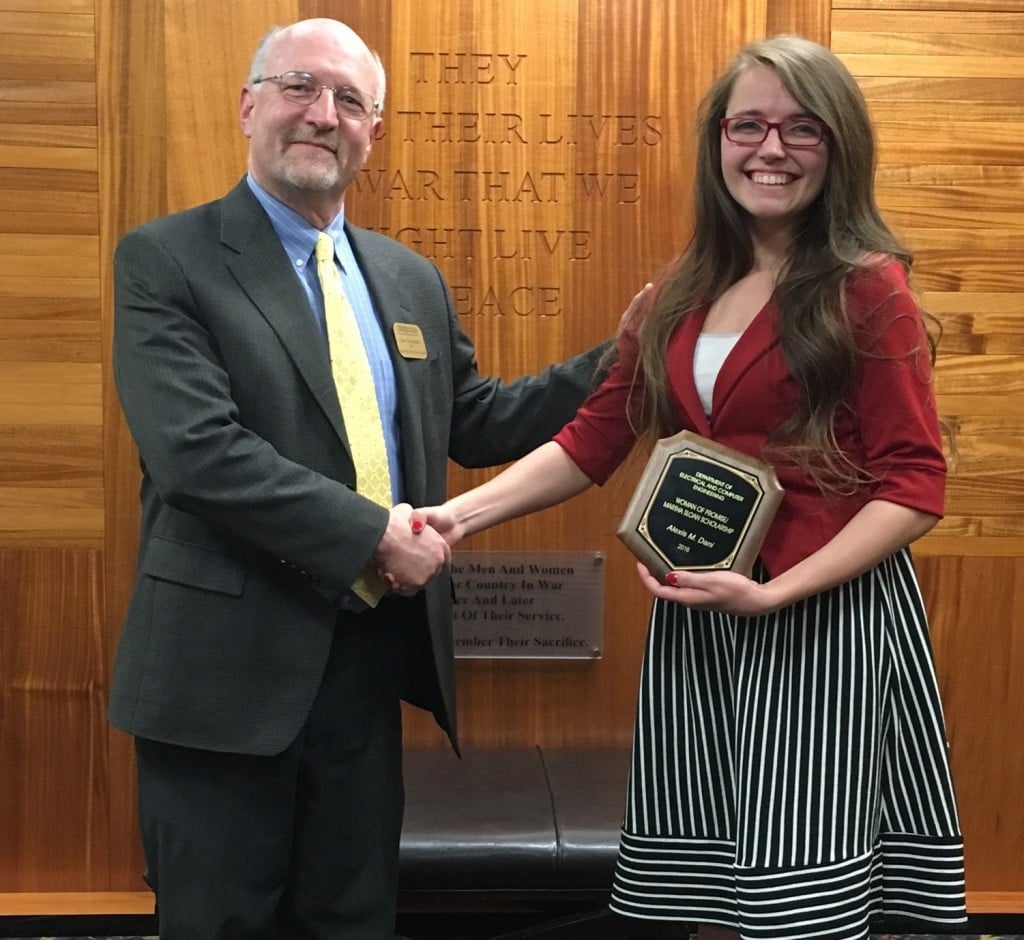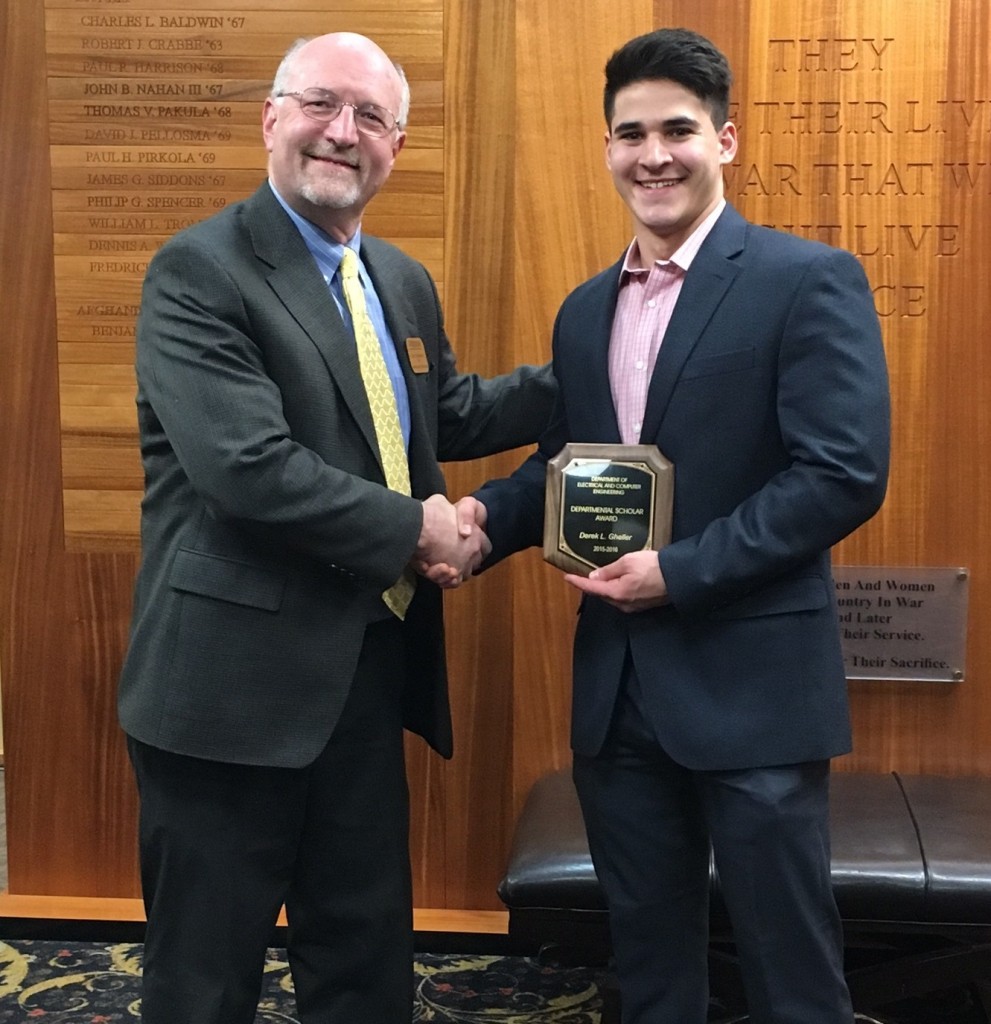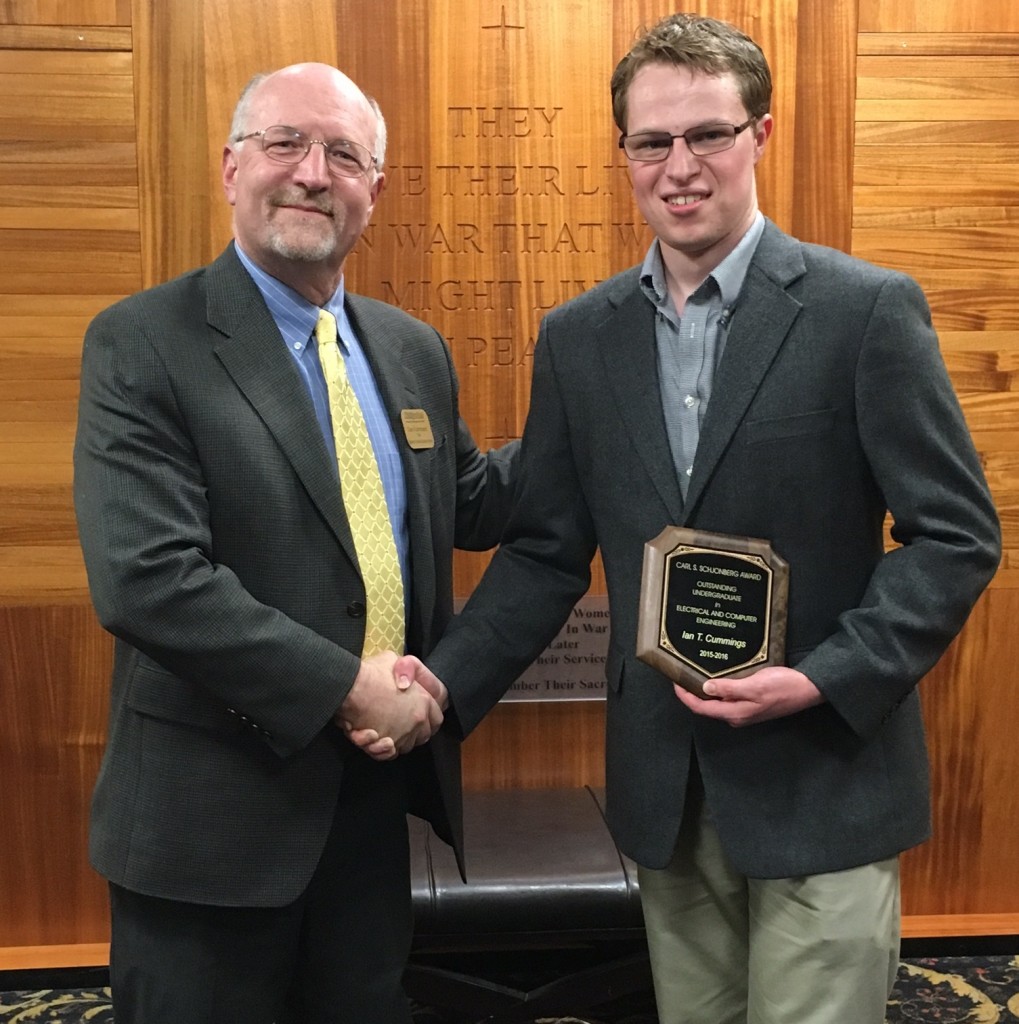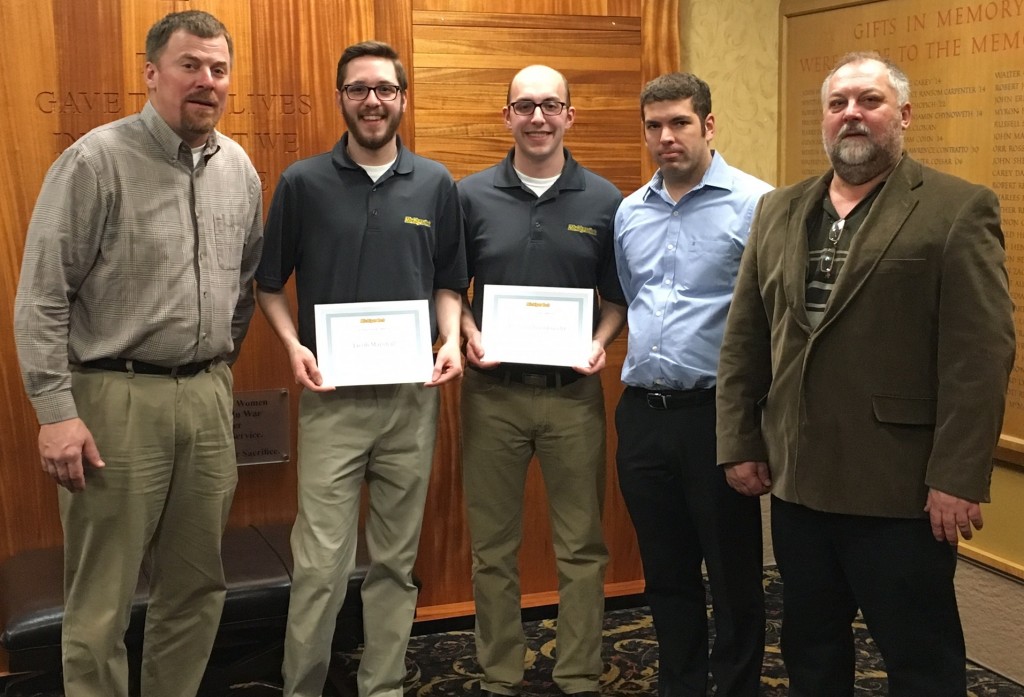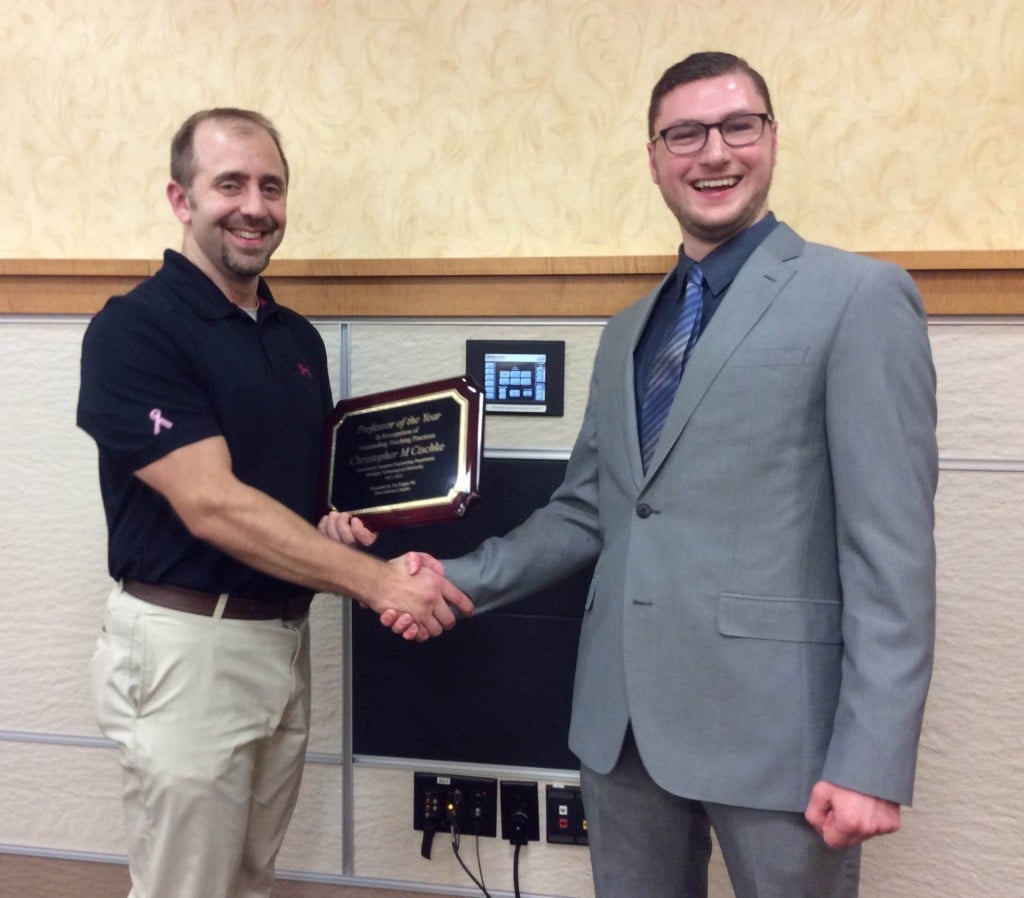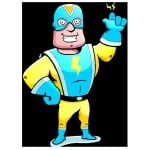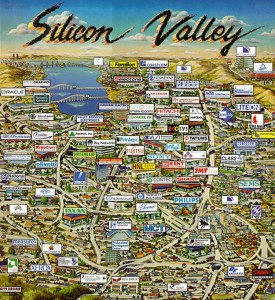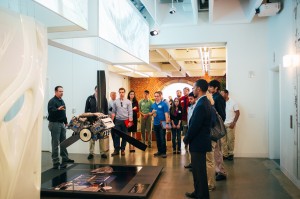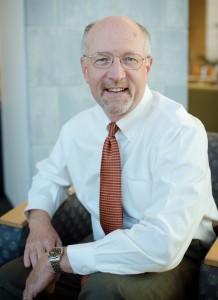 This is the first week of the Michigan Tech summer – a bit of a euphemism, since the leaves aren’t even out on the trees yet. I can remember a meeting of engineering chairs around this time a few years ago, after a particularly hard winter, when then-Provost Max Seel walked in and said “I have bad news for you. In six weeks the days start getting shorter.”
This is the first week of the Michigan Tech summer – a bit of a euphemism, since the leaves aren’t even out on the trees yet. I can remember a meeting of engineering chairs around this time a few years ago, after a particularly hard winter, when then-Provost Max Seel walked in and said “I have bad news for you. In six weeks the days start getting shorter.”
I am taking advantage of this somewhat quiet time in the calendar to visit family in my home town of Tulsa, Oklahoma. When I make trips like this, I like to carve out time to visit high schools and talk to math and physics classes about electrical and computer engineering and about Michigan Tech. Yesterday I visited Union and Memorial high schools and enjoyed my time with the students there. My cousin Donna Hardway is a math teacher at Union High School and made the arrangements for me (thank you Donna). Memorial High School has a highly successful FIRST Robotics team, and I was very impressed with the facility they have created for that activity.
I thought this would be a good time to pay tribute to all the high school teachers out there, especially the math teachers, that do so much to prepare the students that eventually come to places like Michigan Tech. We could not do our job without them. By and large they are overworked and underpaid, but are dedicated to their students. They work every day to prepare students to make the first transition from being children to being independent adults, and in a lot of cases preparing them for the next step which is college. One or two good teachers can make a huge difference in a kid’s life. Often this means guiding students to find out that they really are good at something, giving them the confidence to go on and follow their dreams, which might include, say, engineering. I just can’t say enough good things about them.
I graduated from Tulsa Edison High School in 1975. I took trigonometry and calculus in my junior and senior years, respectively, from a local teaching legend named Jack Dobelbower, who taught at Edison for 31 years. “Dobe”, as all the students called him, was an imposing figure of a man who had an uncompromising commitment to academic excellence. He assigned homework every night, and every class period began with 10-minute quiz on the previous day’s work. I don’t recall their being any other major exams, just those daily quizzes that forced us all to stay up-to-date. He made it clear that in his position between the students and the school administration, he was totally on the side of the students, even to the point of allowing students who were not feeling well to come to class, take the quiz, then declare themselves absent and go back home. He raised the bar for everyone, and did it with such passion and conviction that most students rose to the challenge. Because of that experience, I have always carried the thought that “a good high school calculus class will beat a college calculus class any day.” (That thought may be flawed – I know we have excellent calculus instructors at Michigan Tech too.) Dobe also had a mysterious personal life, and there were lot of wild rumors that he and his wife lived in a converted school bus in the country out west of town, and adopted lots of foster children. I can’t confirm or deny any of that, although these stories did lend a certain mystique that made him seem larger than life for us students. As I said above, one good teacher can make a huge difference, and that was absolutely the case for Jack Dobelbower and me. In my own teaching I try to live up to the example that he set, and if I can do that I will be happy and proud.
Many of the readers of this column who have gone on to a professional life in electrical and computer engineering will have similar stories. If any of this resonates with you, I encourage you to reach out and thank your high school teachers. Show your appreciation while you still have a chance.
I have to end this week’s column on a bit of a down note. I have learned over the past couple of years that there are a lot short-sighted politicians and demagogues who are slowly and systemically dismantling the whole public school education system in the state of Oklahoma. It hurts the economy, it makes the state look bad, and it’s just plain wrong. I stand firmly behind the teachers in this ongoing battle. I suppose that now that I live in Michigan I shouldn’t care so much, but these are my roots and I came out of an excellent public school that did a lot to shape me into the man I am today. I just hate to see that come undone. If you are reading this and feel that high-quality public education is important for our society, our culture, and our economy, please do what you can to support your local schools and the teachers that mean so much to all of us. Thank you.
– Dan
Daniel R. Fuhrmann
Dave House Professor and Chair
Department of Electrical and Computer Engineering
Michigan Technological University
